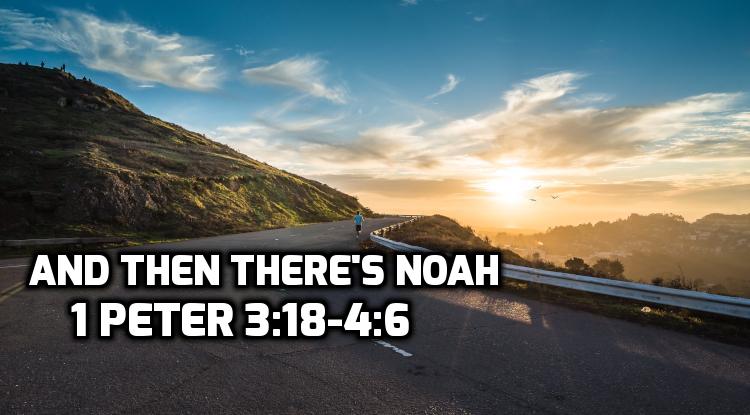Peter concludes his letter by returning to his main theme: Stand firm in the gospel. Peter wrote his first letter give his readers perspective. Our “big picture” –what we believe is true — changes how we think, what we say, and what we do. Peter’s primary concern is to ensure we have the right big picture. He summarizes this theme addressing the leaders of the community.
09 How to Live Now in Light of Eternity (1 Peter 4:7-19)
This section marks the beginning of the end of the letter. In conclusion, Peter returns his main theme of the letter: how you deal with fellow believers and hostile nonbelievers. His answer is in each case you need the right perspective.
Psalm 1: The Righteous and the Wicked
Psalm 1 is classified as a “wisdom” psalm. In many ways it functions as an introduction to the book of psalms.
08 What Does “Spirits in Prison” Mean in 1 Peter? (1 Peter 3:18-4:6)
1 Peter 3:18-4:6 includes one of the more difficult passages in the New Testament. However we understand this section, the context suggests that the main point should be related to patiently enduring suffering for the sake of another.
07 Who is There to Harm You? (1 Peter 3:8-17)
Peter wraps up the second major section of his letter reminding his readers that the more we embrace the truth of who Jesus is and what he did for us, the less we have to fear. The more we know where life, hope and blessing are to be found, the freer we are to let go of this world.
06 What 1 Peter 3:1–7 Teaches About Wives, Husbands, and Submission
In his 3 examples, Peter addresses people who are stuck in a binding social relationship which they cannot easily escape. His advice to all 3 situations is the same: As aliens and strangers you are called to live in a hostile unbelieving world. When possible show the unbelievers that you are a person of virtue by behaving in a submissive and respectful way. Love your oppressor so that your faith is not interpreted as rebellion and hostility, and they may see God’s grace through you.
05 What to Do When You’re Treated Unjustly (1 Peter 2:11–25)
Peter gives us the principle in 1 Peter 2:11-12 and then he applies that principle to 3 situations where someone is be treated unfairly in a binding social relationship: a citizen under an unjust government, a slave under an unjust master and a wife married to an unbelieving husband. This talk examines the first 2 examples.
04 Living Stones: How 1 Peter 2:1–10 Redefines Your Identity in Christ
Have you seen a map of the universe taken from space with a tiny insignificant pinpoint of light labeled “you are here”? In 1 Peter 2:1-10, rather than demoralize us with our insignificance, Peter inspires us with the plan of God and how we are a part of it.
03 How Hope in Christ Changes Everything (1 Peter 1:14-25)
In 1 Peter 1:14-25, Peter explains that the gospel gives us a living hope that ought change every aspect of our lives. Just as the Olympic athletes change their values, their goals, their actions, their words and their daily routines in light of their Olympic goals, so the gospel ought to change us.
02 Living Hope in a Broken World (1 Peter 1:1-13)
In the field of psychology, “locus of control” refers to the extent to which a person believes they can control the world around them. People with a strong internal locus of control tend to attribute the outcome of events to factors under their own control. People with a strong external locus of control attribute outcomes of events to external circumstances. But both have a perspective which influences and predicts their actions. The book of 1 Peter is about that big perspective. In a sense, Peter is writing to explain a “gospel locus of control.”
01 From Fisherman to Apostle: How Peter Learned to Follow Jesus as Lord
An introduction to the letter of 1 Peter and a look at Peter’s calling from Luke 5.
02 Philemon: How to Be a Hero (Philemon 1:12-25)
The Epistle to Philemon is a private letter written by the Apostle Paul. Along with the letter, Paul returning Onesimus, a slave who ran away from Philemon. This letter appeals to Philemon to take the right action and free Onesimus, but it speaks volumes to us today about how to live our daily lives.












